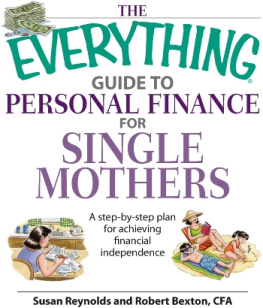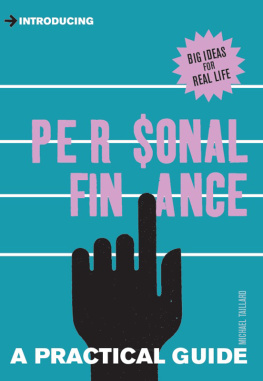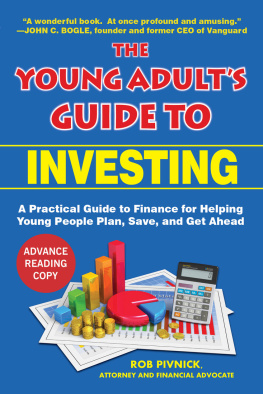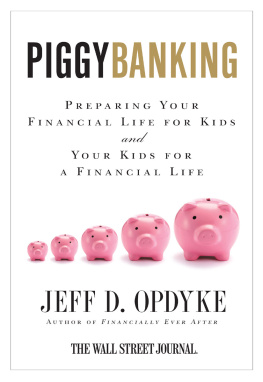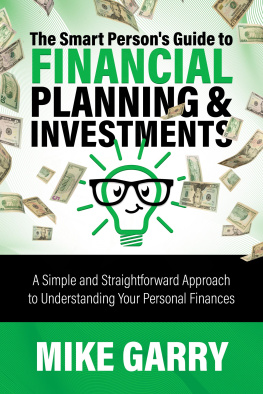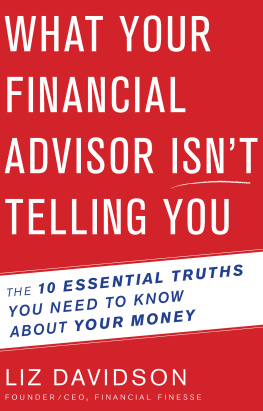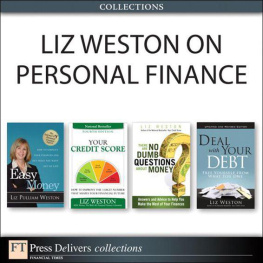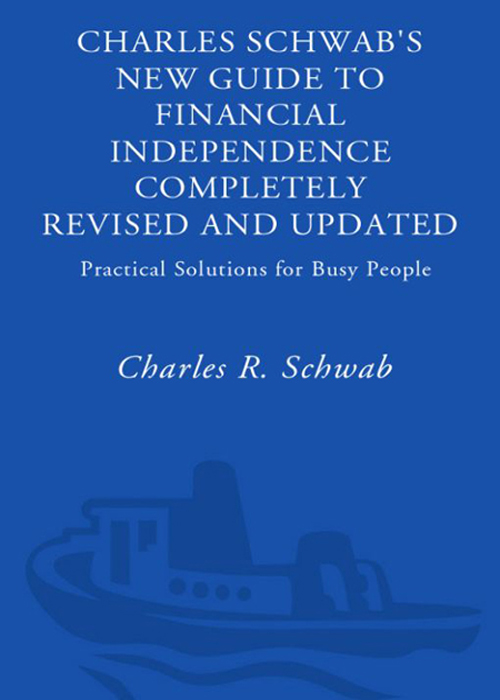
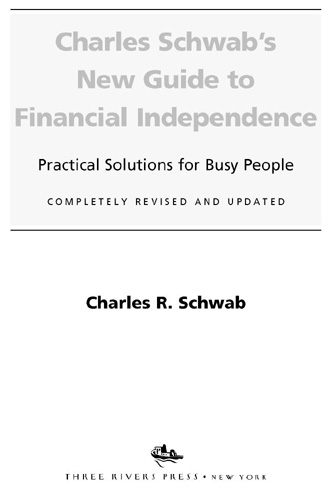
Table of Contents
I dedicate this book to my beloved wife, Helen,who has encouraged and supported methrough my lifelong pursuit of investing,and to my kids and grandkids, who aremy biggest dividend.
Acknowledgments
As anyone who has attempted it knows, writing a book is hardly a solitary activity. In writing and revising this book, I owe thanks and acknowledgment to several sources of help. Nicole Young helped me determine the concept for the first edition of this book, Joanne Cuthbertson guided every aspect of this new edition, and Bo Caldwell helped shape and polish the prose for both editions. My thanks also go to the Schwab Center for Investment Researchespecially Bill Swerbenskifor their assistance, and to all of the employees of Charles Schwab & Co. for their dedicated customer service and their commitment to acting as the custodians of our clients financial dreams. Lastly, my thanks go to our clients, the millions of people who have trusted us with those dreams.
Preface
About the Second Edition
Five years have passed since the first edition of this book was published, and it has been a turbulent time. Our economy has suffered, as have millions of individual investors. Our trust in our financial markets has been seriously breached, and as a result of these events, many Americans have been forced to scale down and delay the retirement theyd counted on. In the late 1990s, the stock market produced record highs almost daily, while the early years of the new millennium brought the worst bear market since the Depression. Investor confidence sank to new lows, thanks in large part to the corporate wrongdoings of a relatively few individuals.
Yet weve seen positive changes as well. The way people invest has changed dramatically: Thanks to the Internet, investing has become more accessible than ever before, and thousands of individuals have become active investors. The tools available to help investors develop and monitor their portfolios are both easier to use and more sophisticated. And, as a result of the market downturn, a lot of people have learned or relearned the value of balance and perspective, and of not jumping on the bandwagon.
It is my hope that by the time you read these pages, we will be well into a recovery. While there are several positive factors at work, one of the things that makes me feel most optimistic is the new tax legislation recently signed by Congress. The Jobs and Growth Tax Relief Reconciliation Act of 2003 not only reduces the federal income tax brackets and the long-term capital gains tax rate from 20% to 15%; more important, it lowers the dividend tax rate from a maximum of 38.6% down to 15%. I have every confidence that these tax cuts will encourage investment, particularly in dividend-paying stocks and equity mutual funds, and that we will see a significant boost to the stock market as a direct result.
In response to all of these changes, Ive included new information in these pages, such as how to create a portfolio that will see you through down as well as up markets, and how you can objectively monitor your performance and understand your results. Theres also much in these pages that hasnt changed, for the simple but very important reason that the fundamentals of investing havent changed. Investors havent always embraced those fundamentals, and many have paid dearly for that lapse. The combination of the accessibility brought about by online investing and an amazing bull market created a euphoria that was hard to resist, and an atmosphere that caused a lot of people to ignore time-tested investing basics and throw discipline out the window.
Those basics are more important now than ever. They are our investing compass points, and I urge you to take them to heart. If you do, they will stand you in good stead. I strongly believe that the American stock market is still the best place for long-term investing, and that with a wise investing plan, you can meet your financial goals. It is my hope that this book will help those goals become a reality.
Prologue
Dear Reader,
Ive heard it said that people are motivated by hope of reward or fear of punishmentthe carrot or the stick. Thats as true in investing as in any other area of life, for both are presentthe carrot and the stick. The stick, or punishment, in investing is what your future looks like if you ignore your financial life; the carrot, or reward, is the choice you have later if you pay attention and do what it takes to plan for that future now.
I like to concentrate on the rewards of investing, but its important to look at the dangers as well. Sadly, there are reminders all around us: elderly people who have worked hard for most or all of their adult lives but have nothing to show for it in terms of retirement, leaving them in their sixties or seventies or eighties with financial pressures they shouldnt have at this stage of life. They have no financial safety net, and now theyre truly on their own, in a very frightening way. Its a relatively new phenomenon, the result of diminishing Social Security and pension plans. And its a very real and sobering cautionary tale about what can happen if you dont put your financial house in order.
A national news story from several years ago has stayed with me vividly because what is happening to these people is at the very heart of my passion about investing. The story described a 73-year-old man who worked stocking the shelves and delivering food for public schools. Seventy-three years oldand his retirement was not in sight. His wifes health was failing, and his job was hard on him physically, not to mention emotionally.
The more I read his story, the more wrenching it became. He didnt set out to end up like this. Thirty years ago he was a branch manager, with salary and commissions reaching to $500 a week, an income that was more than adequate. He and his wife and children lived in a home theyd built, and they even had some of the extras: a boat, a camper, a motor home, vacations. It was, in many ways, the good life.
But he had no pension, savings, or retirement plan, which meant that after years of hard work, because of the harsh economic realities of our times, he took a job that paid six dollars an hour, a job younger men were turning down. Even with that, he didnt have enough.
This was not a man who was unemployed year after year, someone who just couldnt hold down a job. This was a man who had a good job but who had little to show for those years of hard work. His story pulls at me, and I find it sobering, to say the least.
Thats the negative way to look at investing: what happens if you dont do it. But theres a positive side, too, and its just as important. Investing is about your life, and the reward it offers you is havingenough and being able to live the way you want. Its about choice, and while this book and others on the shelf may seem as if theyre explaining a sequence of tasks, what were really talking about are keys that open doors. Investing is about money in the same way that school is about education. They both offer you choice.
The language of investing can disguise this. The word itself makes us think of stock certificates, financial reports, brokerage statements. It all seems so removed from the stuff of our daily livesdinnertime, and the kids going to college, and retirement. But dinnertime and our hopes for our kids and our dreams of a good life are
Next page







